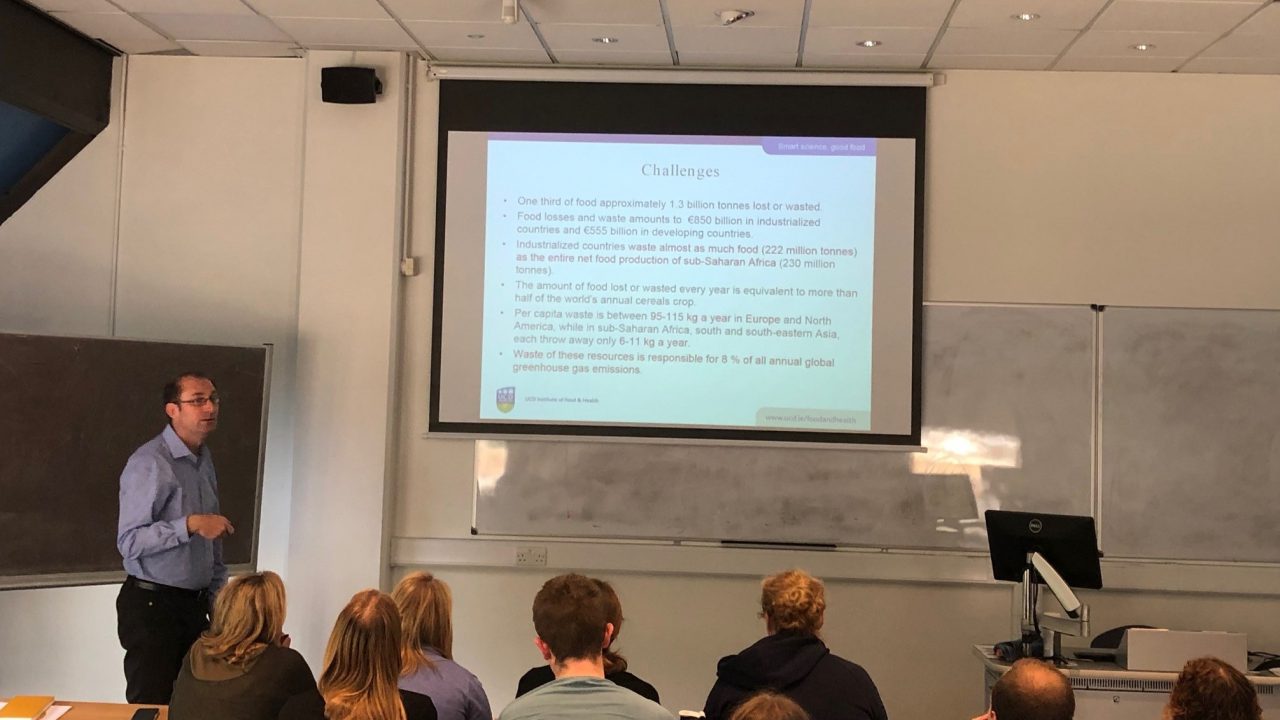Globally up to 30% of food is wasted either at domestic level or at the industrial processing level.
Consumers may perceive that most of that waste is produced by consumers, but it is actually more at factory level that food waste is generated.
A lot of the time, the food consumed – especially in the western world – has seen “something else” done to that food before the consumer gets it.
This is according to Dr. Nigel Brunton, UCD School of Agriculture and Food Science, who gave the first of a series of seminars on Wednesday, September 25, which was entitled: ‘Harnessing Bioactives from plant food waste and underutilised resources.’
The seminar was one of a number in the school’s Research Seminar Series that is part of a joint programme between AgriLand and the university’s School of Agriculture and Food Science.
Producing waste
Meanwhile, Brunton pointed to the simple potato as part of his hypothesis and highlighted how it has been peeled often before it has been processed into a chip or a crisp, thus generating waste products “at a huge throughput level”.
If you add them all up together – it accounts for almost the vast majority of the waste we generate.
He continued: “There are other foods as well – if you take the processing of cattle there is also waste generated in that, while the plant food area – which is what I have concentrated on the most – up to 50% of plant foods are wasted.
“If you look at the statistics from a waste point of view the percentage of waste is much higher for a plant food than it would be for some other commodities.”
Sustainable living
Brunton says that if contrasted with the dairy industry – where only 20% is wasted – then it becomes clear that industry is really on top of the whole area of sustainability and how best to get value from the raw material that they have.
Whereas when it comes to plant foods we are nowhere there in that whole journey and there are challenges as a result.
He added: “Industrialised countries are the worst for generating plant food waste and there is much more waste in these counties compared to that in developing countries.
“While it is cause for concern there are also opportunities to be gained from this too.”
Where there is a will, there is a way
Brunton then pointed to how developing countries have the scientific knowledge, technologies and the will to try and valorise and do better things with plant food.
He also spoke about his current research which looks at recovering valuable components from food waste for alternative use such as agents to control the deterioration of foods or provide health benefits to consumers.
“If we can valorise plant food waste we could develop new value chains for higher added value products,” he continued.
We could open new markets, connect organisations and sectors; and improve the environmental performance and cost efficiency.
“We could also validate new products with higher value than the current applications of the raw material, contributing to rural development and employment and increase sustainability and meet a clear market demand.
“We still have a lot of work to do…”
